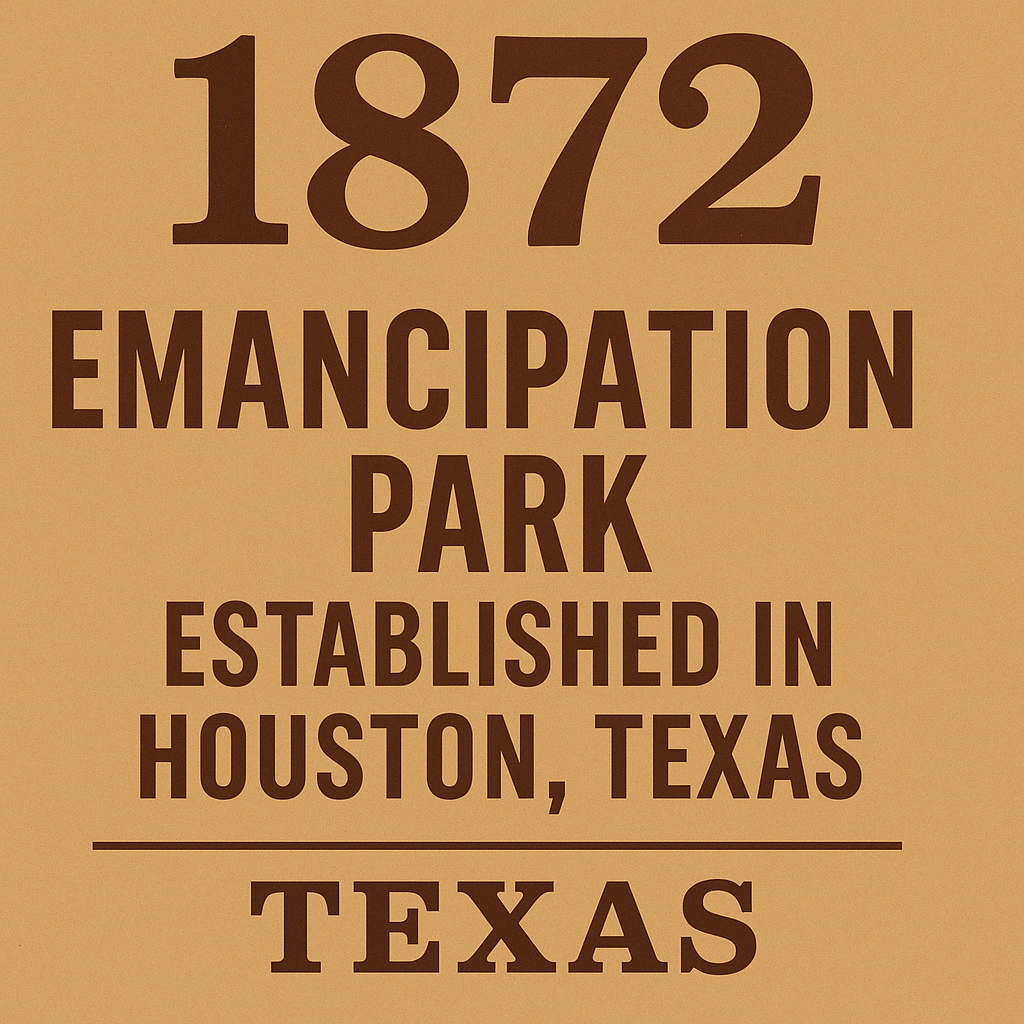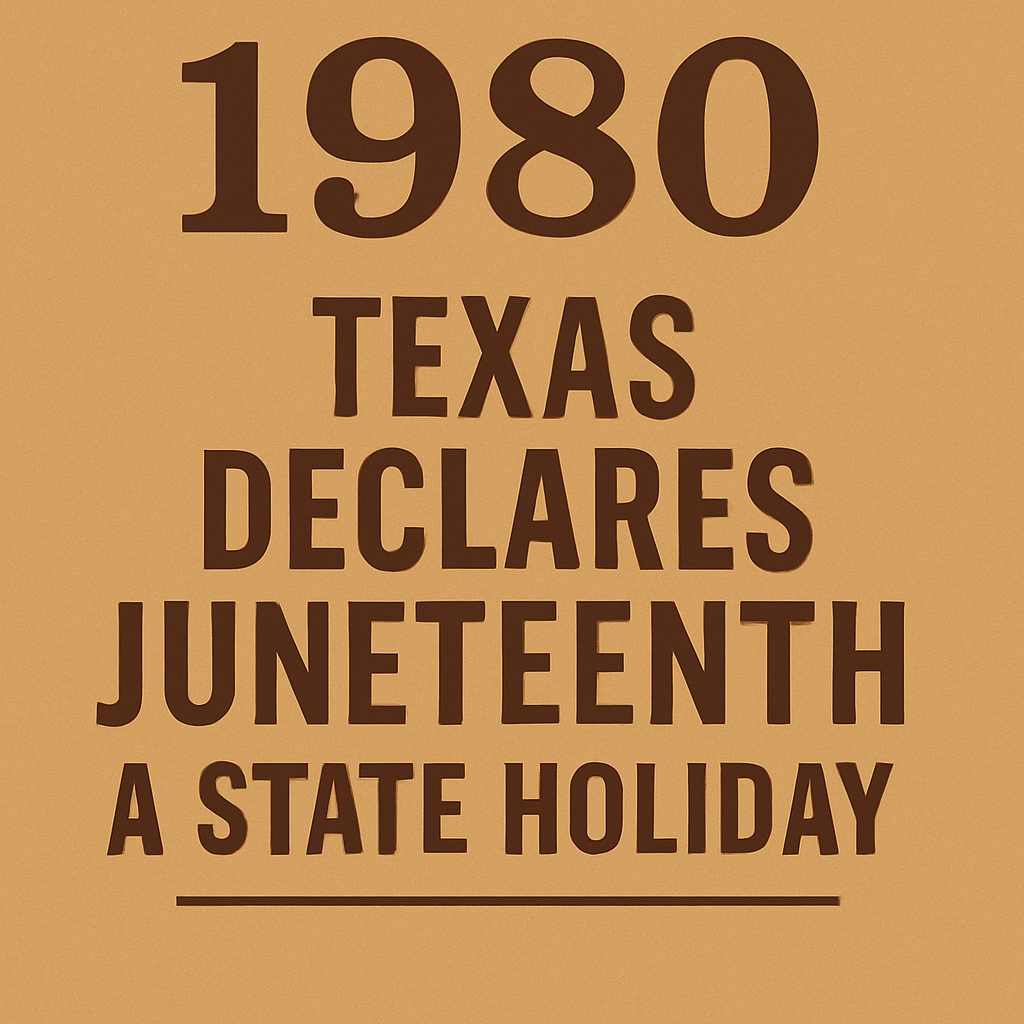Albert W. dent, president of Dillard University, elected president of National Health Council.
ON this date in 1991, City Auditor Wellington Webb is elected mayor of Denver, Colo. He is the first African American to hold the post.
On June 19, 1865, Union Major General Gordon Granger arrived in Galveston, Texas, and issued General Order No. 3, announcing the enforcement of the Emancipation Proclamation in Texas—marking the official end of slavery in the state. Though President Abraham Lincoln had signed the Emancipation Proclamation on January 1, 1863, enforcement in Confederate territories was slow and often resisted. Texas, being geographically isolated and lightly garrisoned, had maintained slavery longer than most Confederate states. With the arrival of Union troops, Granger’s order informed the approximately 250,000 enslaved African Americans in Texas that they were now free: “All slaves are free. This involves an absolute equality of rights and rights of property between former masters and slaves.” This moment became the foundation of Juneteenth, the oldest nationally celebrated commemoration of the end of slavery in the United States. It is supported by primary sources including the text of General Order No. 3 and contemporary military dispatches.
Exactly one year after the emancipation announcement in Texas, freed African Americans organized the first Juneteenth celebration on June 19, 1866. These gatherings included music, food, prayer services, and other activities to commemorate freedom and foster community among the formerly enslaved population.
On June 19, 1953, African American residents of Baton Rouge, Louisiana, initiated a bus boycott to protest segregated seating. Led by Reverend T.J. Jemison, the boycott lasted eight days and resulted in a compromise allowing Black passengers to sit in the front of buses. This action served as a model for the more extensive Montgomery Bus Boycott two years later.
President John F. Kennedy sent a comprehensive civil rights bill to Congress on June 19, 1963. The proposed legislation aimed to end segregation in public places and banned employment discrimination. This bill laid the groundwork for the Civil Rights Act of 1964.
On June 19, 1970, the Black Panther Party held a rally at the Lincoln Memorial in Washington, D.C., calling for a Revolutionary People\’s Constitutional Convention. The event aimed to draft a new constitution that would guarantee rights and freedoms for all Americans, particularly marginalized communities.
The U.S. Senate passed a resolution on June 19, 2009, formally apologizing for the institution of slavery and subsequent discriminatory laws. While the apology acknowledged the injustices faced by African Americans, it did not include provisions for reparations.
President Joe Biden signed the Juneteenth National Independence Day Act into law on June 17, 2021, making June 19 a federal holiday. This recognition came after years of advocacy and symbolizes a national acknowledgment of the end of slavery in the United States.
On June 19, 2023, communities across the United States held various events to commemorate Juneteenth. These included parades, educational programs, and cultural festivals, reflecting the growing recognition and importance of the holiday in American society.
June 19, 2024, saw widespread observance of Juneteenth, with events focusing on both celebration and reflection. Discussions centered around the progress made in racial equality and the work that remains, highlighting the day\’s significance beyond historical remembrance.
Exactly one year after the issuance of General Order No. 3, the first Juneteenth celebration took place on June 19, 1866. Freed African Americans in Texas organized community gatherings featuring music, food, prayer services, and other activities to commemorate their emancipation. These celebrations laid the foundation for Juneteenth traditions that continue to this day, emphasizing education, reflection, and cultural pride. Wikipedia

On June 19, 1872, a group of African American community leaders in Houston purchased 10 acres of land to create Emancipation Park. The park was established as a dedicated space for Juneteenth celebrations and other community events. This initiative represented a significant achievement in providing a safe and inclusive environment for African Americans to honor their heritage and freedom. Wikipedia
A notable Juneteenth celebration occurred on June 19, 1900, in Austin, Texas, known as the Emancipation Day celebration. Held in \”East Woods\” on East 24th Street, the event featured a large gathering of African Americans commemorating their freedom with various festivities. Photographs from this celebration provide valuable historical insights into early Juneteenth observances. guides.canadacollege.edu
On June 19, 1964, the United States Senate approved the Civil Rights Act, a landmark piece of legislation that aimed to end segregation and discrimination based on race, color, religion, sex, or national origin. The act addressed voting rights, public accommodations, education, and employment, marking a significant victory in the Civil Rights Movement. AP News

On June 19, 1980, Texas became the first U.S. state to officially recognize Juneteenth as a state holiday. The legislation was spearheaded by State Representative Al Edwards, who advocated for the formal acknowledgment of the historical significance of June 19th. This recognition paved the way for other states to follow suit in honoring Juneteenth. Wikipedia
On June 19, 1997, the 105th Congress of the United States passed a resolution recognizing the historical significance of Juneteenth Independence Day. The resolution acknowledged the importance of the date in American history and encouraged the continued observance of Juneteenth to promote understanding and appreciation of African American history and culture.
On June 19, 2013, the U.S. Senate passed S.Res.175, a resolution observing Juneteenth Independence Day. The resolution honored the historical significance of June 19, 1865, and encouraged Americans to recognize and celebrate the end of slavery in the United States. It also highlighted the importance of continued efforts to promote equality and justice. Wikipedia
© 2026 KnowThyHistory.com. Know Thy History